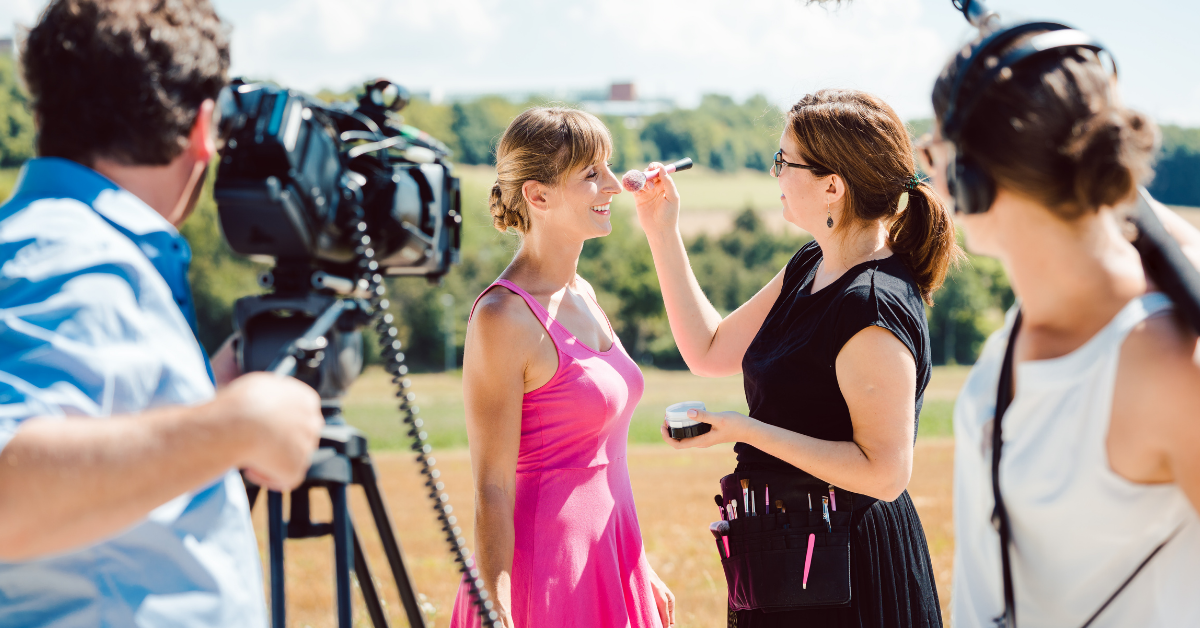
Blag
Órnaith Ní Fhearghail is ainm dom agus is mac léinn mé in Ollscoil na Banríona. Tá mé i mbliain na céime, ag déanamh buncéime i gCaidreamh Idirnáisiúnta agus sa Ghaeilge. An seimeastar seo, bhí deis agam modúl úrnua a ghlacadh mar chuid den chúrsa Gaeilge, Gairmeacha le Gaeilge (CEL 3010). Cuireadh an modúl ar fáil den chéad uair riamh i mbliana, agus is iontach an deis í do mhic léinn a bhfuil suim acu a bheith ag obair trí mheán na Gaeilge sa todhchaí.
An modúl
Gach Aoine, téann an rang uilig ar thaithí oibre sna háiteanna éagsúla atá roghnaithe againn, agus gach coicís, bíonn seimineár againn le comhordaitheoir an mhodúil, Dr. Síobhra Aiken. Sna seimineáir seo, bíonn plé á dhéanamh againn faoin taithí oibre go dtí seo, faoi dheiseanna fostaíochta atá ann agus an Ghaeilge agat (mar shampla, bhí ceardlann faoin aistriúchán againn leis an Dr. Órla Nic Ruairí, a oibríonn san Aontas Eorpach), agus faoi na scileanna éagsúla a bhaineann leis an domhan ghairmiúil.
An próiseas cuardaigh
I rith an tsamhraidh, bhí ar an rang uilig ár dtaithí oibre féin a eagrú go neamhspleách le gnó éigin a mbaintear úsáid as an Ghaeilge ann mar theanga oibre. D’aistrigh mé mo CV ón Bhéarla go dtí an Ghaeilge agus sheol mé ríomhphoist chuig áiteanna oibre éagsúla a raibh suim agam a bheith ag obair iontu, agus murar sheol siad freagra chugam, chuir mé scairt orthu. Ba thaithí ar leith í an próiseas cuardaigh féin, agus bhí sé tábhachtach a bheith daingean.
Sa deireadh, shocraigh mé le Raidió Fáilte – an stáisiún lán-Ghaeilge atá lonnaithe i mBéal Feirste – go ndéanfainn mo thaithí oibre leo.
Raidió Fáilte – cad chuige?
Roghnaigh mé Raidió Fáilte toisc go bhfuil suim ar leith agam sna meáin, agus chun fáil amach an bhfuil oiriúnach do phost sna meáin Ghaeilge. Anuas air sin, ní raibh mórán muiníne agam as mo chuid Gaeilge labhartha, agus b’iarracht í an taithí oibre seo feabhas a chur uirthi.
An sórt taithí a fhaighim
Níl mo thréimhse i Raidió Fáilte críochnaithe go fóill, ach fuair mé neart deiseanna agus traenála ann cheana féin. Bhí mé beo ar an aer mar agallaí dhá uair sa chéad lá a bhí mé ann, baisteadh tine gan amhras! Ach taithí mhaith a bhí ann, agus ón tseachtain sin amach, bíonn seans agam (agus ag an chailín eile atá i mo rang agus a dhéanann a taithí oibre in éineacht liom) a bheith ar an aer i rith an chláir ‘Beo ar Maidin’. Ar dtús, bhí muidne mar agallaithe, ach le déanaí bhí deis againn a bheith inár n-agallóirí – bhí sé sin i bhfad níos deacra, ach ba thaithí thábhachtach í, más rud é go mbeidh mé ag leanúint ar aghaidh le cúrsaí na meán amach anseo. Is deis foghlama í gach aon mheancóg a dhéanaim!
Chuir mé mo chlár ceoil féin le chéile fosta – d’fhoghlaim mé caidé mar a bhaintear úsáid as na cnaipí uilig agus as an chóras atá in úsáid ar ríomhairí an stáisiúin. Ní shílim go bhfuil mórán suime agam sna gnéithe teicniúla sin, ach tá sé riachtanach an buneolas sin a bheith agam, agus úsáideach, cinnte. Bíonn mórán saoirse agam mo smaointe féin a fhorbairt maidir le cláir; faoi láthair tá mé ag obair ar chlár a chuir mé le chéile liom féin faoi roinnt ceoltóirí Éireannacha éagsúla a bhfuil Gaeilge acu (mar sin bhí siad ábalta agallaimh a dhéanamh liom). Ba mhaith liom clár eile a dhéanamh faoi thionchairí na Gaeilge chomh maith, ach seans mór nach mbeidh an t-am agam roimh chríoch mo thréimhse i Raidió Fáilte.
Tairbhe an mhodúil
Tá mórán buntáistí a bhaineann leis an mhodúl seo. Mar a luaigh mé thuas, bíonn neart deiseanna foghlama ar fáil san áit féin a ndéanann tú do thaithí oibre ann, agus faigheann tú léargas ar an tslí bheatha a bhfuil suim agat inti. Sna ceardlanna, faigheann tú léargas ar shlite beatha eile nach mbaineann leis an taithí oibre atá roghnaithe agat, ach, b’fhéidir, a bhfuil suim éigin agat iontu. Is féidir leat tuairim níos feasaí a bheith agat, mar thoradh, faoi na poist a bheidh uait amach anseo.
Bíonn deiseanna aga naisc a chruthú, fosta, le daoine ón phobal Ghaelach a mbuaileann tú leo i rith na taithí oibre. Ní hamháin go bhfuil na naisc sin úsáideach faoi láthair agus mise mar bhall de choiste an Chumainn Ghaelaigh, ach beidh sé tábhachtach amach anseo gan aon agó.
Blog
My name is Órnaith Ní Fhearghail and I’m a student at Queen’s. I’m in the final year of my undergraduate degree in International Relations and Irish. This semester, I had the opportunity to take a brand new module as part of my Irish course, Gairmeacha le Gaeilge (Professions in Irish; CEL 3010). The module was made available for the first time ever this year, and it’s an excellent chance for students who are interested in working through the medium of Irish in the future.
The module
Every Friday, the whole class goes on work experience in the various places that they’ve chosen, and every fortnight, we have a seminar with the coordinator of the module, Dr Síobhra Aiken. In these seminars, we discuss our work experience until now, employment opportunities that are available when you can speak Irish (for example, we had a workshop with Dr. Órla Nic Ruairí, who works in the European Union, about translation), and the various skills relating to the professional world.
The searching process
During the summer, we (the class) had to organise our work experience independently, with businesses in which Irish is used as their working language, I translated my CV from English to Irish and sent emails to a variety of workplaces that interested me, and if they didn’t send an answer, I rang them. This searching process was a particular experience in itself, and it was important to be determined.
In the end, I decided with Raidió Fáilte – the Irish-language radio station situated in Belfast – that I would carry out my work experience with them.
Raidió Fáilte – why?
I chose Raidió Fáilte because I have a particular interest in the media, and I was hoping to find out whether I’m suitable for a job in Irish-language media. On top of that, I didn’t have a lot of confidence in my spoken Irish, and my work experience was an effort to improve it.
The sort of experience I get
My time at Raidió Fáilte isn’t finished yet, but I’ve already gotten a wealth of opportunities and training. I was live on air as an interviewee twice on my first day there, a baptism of fire without a doubt! However, it was a great experience, and since that week, I get the opportunity to go on air during the programme ‘Beo ar Maidin’ (as does the other girl in my class who does her work experience there with me). At the start, we were the interviewees, but recently we’ve gotten to be interviewers – that was a lot harder, but it was an important experience, if I’m to continue on in the media in the future. Every mistake I make is a learning opportunity!
I put my own music show together as well – I learned how to use the buttons and the sound system that’s used on the station’s computers. I don’t think I have much interest in the technical aspects, but it’s necessary to have that foundational knowledge, and useful, of course. I have a lot of freedom to develop my own ideas relating to shows; at the moment, I’m working on a programme I put together by myself about a few Irish musicians who speak Irish (which meant I was able to interview them). I would like to put a show together about Irish-language influencers, but chances are I won’t have time for that before the end of my time at Raidió Fáilte.
Benefits of the module
This module has a lot of advantages. As I’ve discussed above, a range of learning opportunities are available in the place where you do your work experience, and you can get an insight into the career of your interest. In the seminars and the workshops, you get an insight into the other careers that don’t relate to your work experience but, maybe, still interest you somewhat. You can have a more informed opinion, as a result, about the jobs you’d like down the line.
You get opportunities to create links, too, with people of the Irish community that you meet during your work experience. Not only are these links useful to me right now while I’m a committee member of An Cumann Gaelach, but I have no doubt that they’ll be important to me in the professional world, too.























